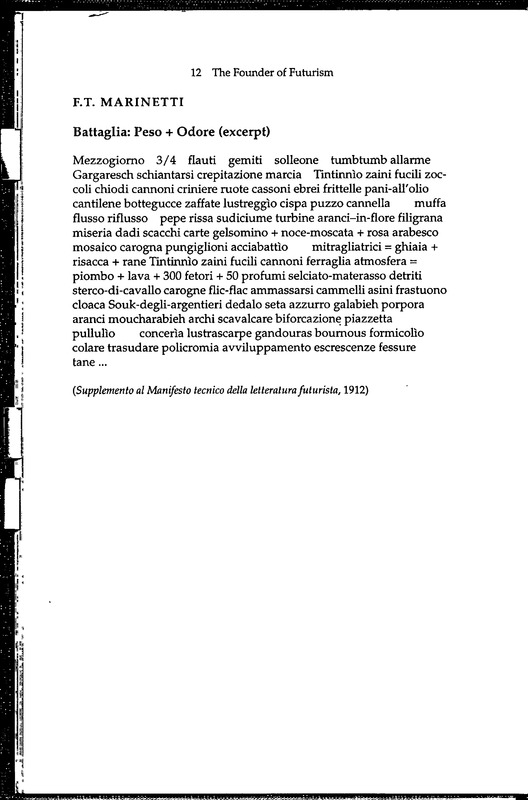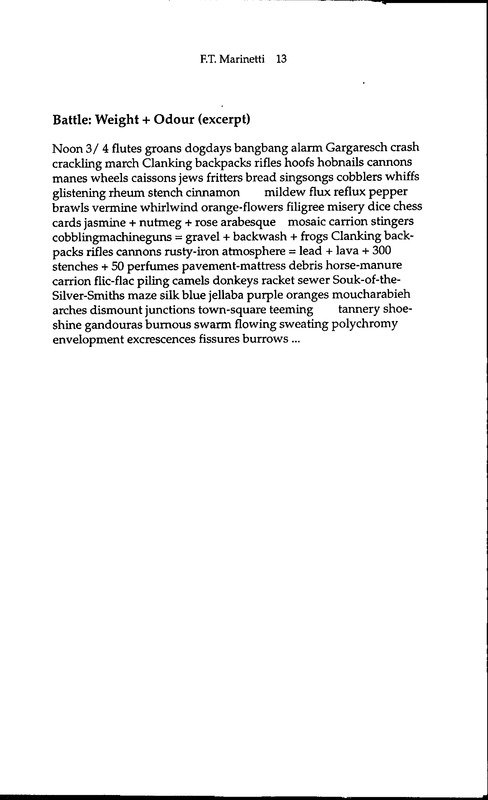Battle: Weight + Odour
F. T. Marinetti -the founder of Italian Futurism- declared the necessity of “liberat[ing] words” in his 1912 Technical Manifesto of Futurist Literature (Rainey). He asserts the importance of breaking from past literary tradition with the new idea of “words in freedom” which reflect disorder and dynamism through ridding of adjectives and adverbs, putting nouns in succession, emphasizing noise, weight, and smell, among other principles of this new futurist style of writing (Rainey). One example of the Italian futurist poems thereafter produced is Marinetti’s own poem “Battle: Weight + Odour (excerpt),” written in 1912 (Bohn, p. 12-13).
This poem exemplifies several of the new literary guidelines provided by Marinetti in his manifesto. There is a distinct lack of punctuation, with, instead, plus and equal signs as well as occasional wide spaces employed. Marinetti also frequently uses nouns in succession, such as “backpacks rifles,” a technique he declares “foreshorten[s] the image to a single essential word” (Rainey, p. 120). This works to convey the poem’s motion in quick, direct analogies to achieve an “uninterrupted flow of images” (Rainey, p. 147). The poem, too, draws attention to the noises and smells of various nouns, another technique meant to convey dynamism and encapsulate life’s motion in literature.
Several other writers followed Marinetti’s example and even expanded upon the disorder advocated within the manifesto. Futurist poets such as Carlo Carra and Volt heavily incorporated onomatopeia as well as demonstrated an even greater disruption of form through portraying poems as visual art (“Words-In-Freedom”). These poems were published in unconventional, pictorial formats and performed verbally at serate, performative events held by Futurists (“Words-In-Freedom”).
Bohn, Willard. Italian Futurist Poetry. University of Toronto Press, 2005.
Rainey, Lawrence, et al. “Technical Manifesto of Futurist Literature.” Futurism: An Anthology, Yale University Press, New Haven, CT, 2009.
“Words-In-Freedom.” Italian Futurism, 1909–1944: Reconstructing the Universe, The Solomon R. Guggenheim Foundation, 2014, http://exhibitions.guggenheim.org/futurism/words_in_freedom/.

